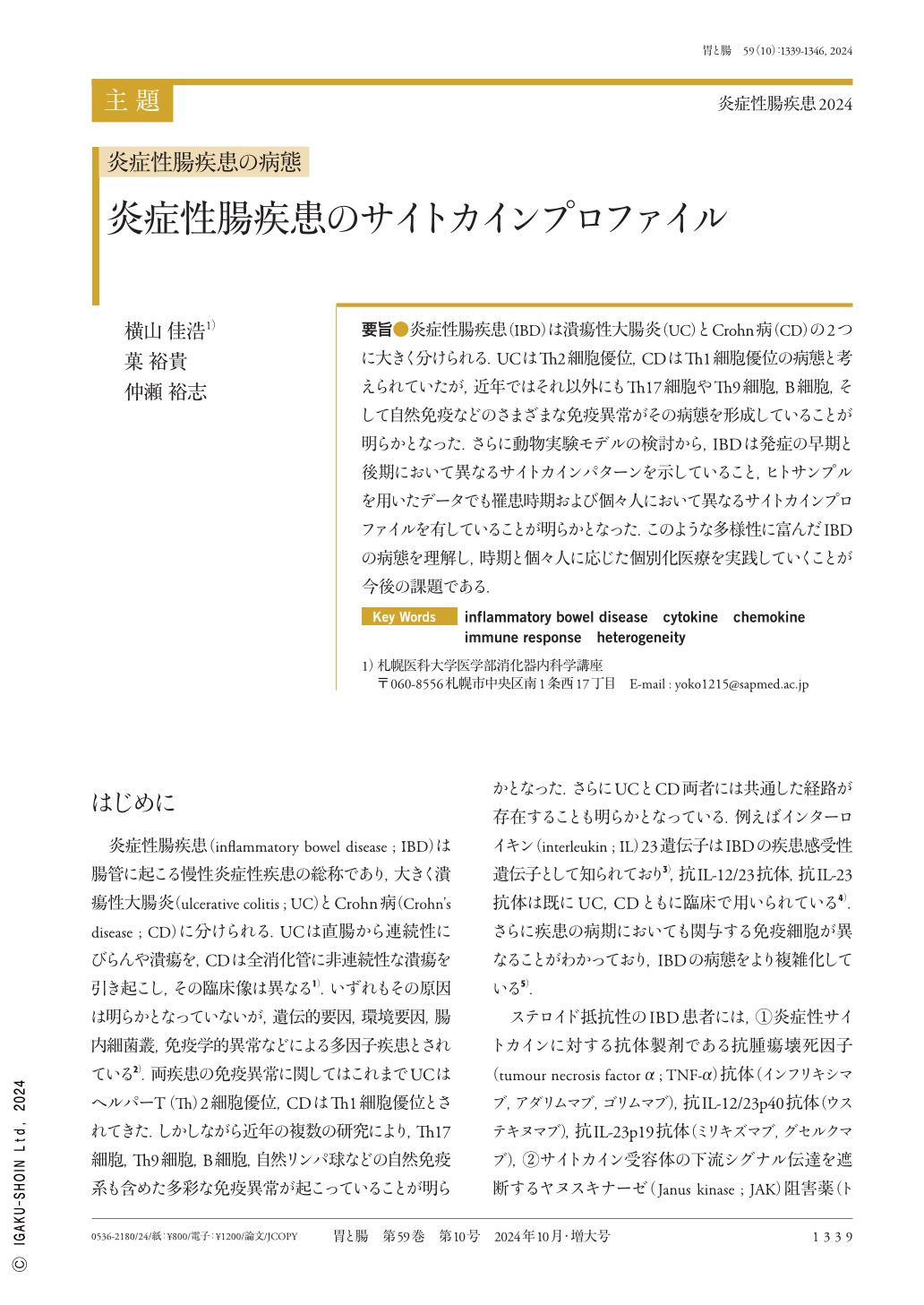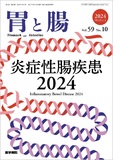Japanese
English
- 有料閲覧
- Abstract 文献概要
- 1ページ目 Look Inside
- 参考文献 Reference
要旨●炎症性腸疾患(IBD)は潰瘍性大腸炎(UC)とCrohn病(CD)の2つに大きく分けられる.UCはTh2細胞優位,CDはTh1細胞優位の病態と考えられていたが,近年ではそれ以外にもTh17細胞やTh9細胞,B細胞,そして自然免疫などのさまざまな免疫異常がその病態を形成していることが明らかとなった.さらに動物実験モデルの検討から,IBDは発症の早期と後期において異なるサイトカインパターンを示していること,ヒトサンプルを用いたデータでも罹患時期および個々人において異なるサイトカインプロファイルを有していることが明らかとなった.このような多様性に富んだIBDの病態を理解し,時期と個々人に応じた個別化医療を実践していくことが今後の課題である.
Inflammatory bowel disease(IBD)can be categorized as ulcerative colitis and Crohn's disease. Ulcerative colitis was a Th2-cell-dominant condition, whereas Crohn's disease is a Th1-cell-dominant condition. However, various other immune abnormalities, including Th17, Th9, B cells, and innate immunity, have contributed to the pathogenesis of the disease in recent years. Furthermore, animal models have demonstrated that IBD exhibits different cytokine patterns in the early and late stages of disease onset, and data from human samples have shown different cytokine profiles at different times of the disease and in different individuals. Understanding the pathogenesis of IBD in its rich diversity and practicing personalized medicine in the future is important.

Copyright © 2024, Igaku-Shoin Ltd. All rights reserved.


